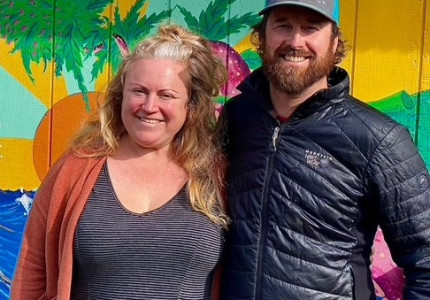Five years ago, Rayna Grace Matthews and her wife, Kara Crockett, moved to Potter Valley to take over the cannabis farm and property purchased by Rayna’s parents in 2005.
Walking through their compact and blessedly flat garden east of Potter Valley, it is easy to see why Rayna’s family was attracted to this location.
“Currently, in the Jewish calendar, the land is laying fallow. This is the time to regenerate- this restful time of winter when there is so much happening in the soil. The grass is so green, and the mallow and plantain are just beginning to push up,” she notes.
“I’d come up seasonally when my parents were growing and help out during harvest season. My parents became ready to move on and we were trying to figure out a place to start a home and a family. We decided to make a go of it here in Potter Valley,” says Rayna.
“We moved here in February of 2017. It was a very rainy month and there was no wood for sale, but we found enough around the property to stay warm. We knew we were going to grow, and we knew we had to figure out how to do it legally, because we were planning our family,” she continues.
“In the beginning, everything was ‘figure out as you go,’ from the farming to the bureaucracy. Our first year, we had leftover seeds from my Dad. We put some seeds in the ground and used his old calendars to help us.”
“We knew we wanted to do sun-grown,” says Kara. We received a lot of advice on how to move into the soil and improve it.”
 “There is such great sun here,” says Rayna. “It’s quite hot in the summer, but you couldn’t ask for a better spot. It’s flat, open and beautiful. We work with biodynamic concepts, and our long-term goal is to become biodynamically certified. I’m a stargazer and teacher. I really connect to the constellations and the planetary cycles.”
“There is such great sun here,” says Rayna. “It’s quite hot in the summer, but you couldn’t ask for a better spot. It’s flat, open and beautiful. We work with biodynamic concepts, and our long-term goal is to become biodynamically certified. I’m a stargazer and teacher. I really connect to the constellations and the planetary cycles.”
“We’ve heard so often- ‘Give up the ‘Mom and Pop’ organic schtick! Go big! Get a greenhouse and put whatever in to make money,’” says Kara. Clearly, this is not a path the family will ever follow. Kara and Rayna grow a cottage garden, along with vegetables and raising chickens. “It was important for us to have an integrated experience, and to have our children be a part of the farm life,” says Rayna. “We’ve kept this intentionally small to work for us.”
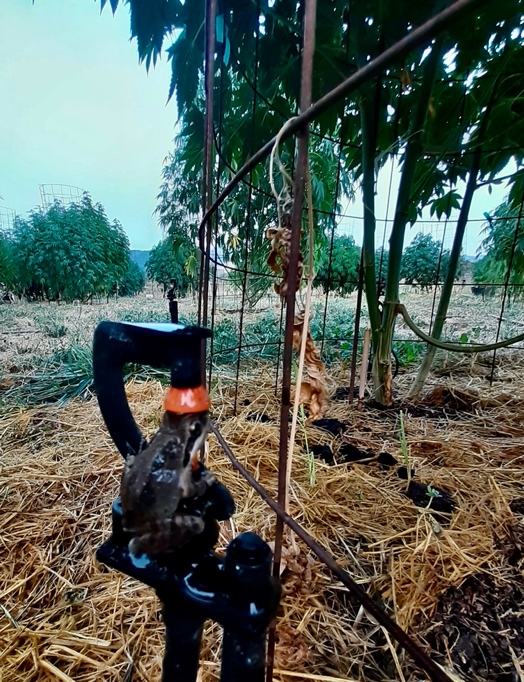 Ethics play a major force in Rayna and Kara’s lives and inform how they garden and how they consume cannabis.
Ethics play a major force in Rayna and Kara’s lives and inform how they garden and how they consume cannabis.
“As a consumer,” says Kara, “I’m always looking for equity. I also want to be supporting people of color and queer farmers. I will pay extra dollars for that. We’re not trying to focus on branding, but we do believe our story makes a difference.”
“Even the names of some strains can be offensive. We believe that cannabis creates a connection with Presence. It’s one of the great gifts of the plant. Paying attention to what you’re calling your strains is important. Naming a plant Agent Orange? Or using sexist names? One year we named every plant for one of our female heroines,” smiles Rayna.
Rayna and Kara are daily cannabis consumers, and they are extremely satisfied with their strains – high enough in THC to provide a lovely lift, but temperate enough to work, parent and focus throughout the day.
“There is such a push toward growing the plants with the highest THC level, which we try to pay attention to because we want to be successful as businesspeople. But personally, that’s not what I’m looking for. Less THC makes it possible for me to do what I need to do. People get locked in the numbers. It’s the analytical paradigm of this moment,” Rayna continues.
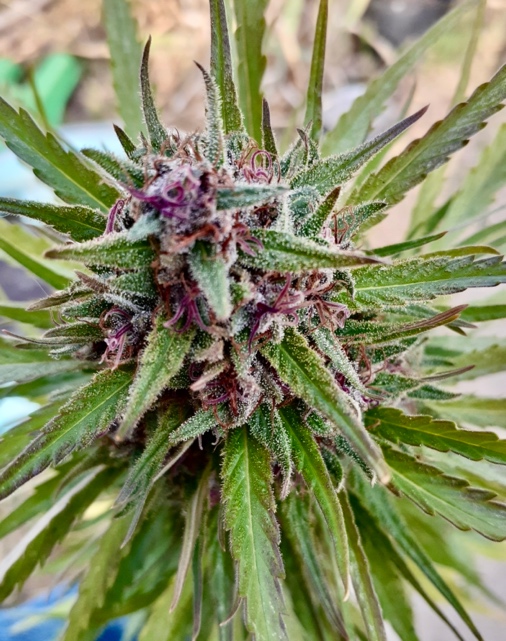 The family engages in “Gig Life” to supplement their income. Kara has her own catering business, Grazing Bull Catering. Rayna is a “starguide” for events and a prayer leader at Kol HaEmek- Inland Mendocino County’s Synagogue, where she is known as Kohenet Rayna Grace.
The family engages in “Gig Life” to supplement their income. Kara has her own catering business, Grazing Bull Catering. Rayna is a “starguide” for events and a prayer leader at Kol HaEmek- Inland Mendocino County’s Synagogue, where she is known as Kohenet Rayna Grace.
The family is still processing a police raid that happened on the property several years ago.
“The police came in, armed to the teeth pointing guns at our heads. Our whole family was traumatized. My parents were in their ‘50s and ‘60s. My mother is a teacher in the Waldorf tradition. After the raid, it was either fight the system or potentially lose her job as a teacher. My mother and I were arrested, and she took the main charges. We are all still experiencing the intergenerational trauma of this unnecessarily violent raid,” says Rayna.
Looking at the small size of the garden, it is hard to imagine why it would have been necessary to utilize such force, especially when there are nearby properties where literally tons of illegal cannabis are grown with impunity.
 “We’re the smallest of the small,” says Rayna. “Many cottage farmers who started the licensing process at the same time as we did have moved on. We’ve made this investment. We have our ducks in a row, but how long will it take to see if we can hold on? We believe there is a place for small farmers and heritage gardens, but it’ll take a couple years for consumers to learn to pay attention. In the meantime, we have to hold out until that happens.”
“We’re the smallest of the small,” says Rayna. “Many cottage farmers who started the licensing process at the same time as we did have moved on. We’ve made this investment. We have our ducks in a row, but how long will it take to see if we can hold on? We believe there is a place for small farmers and heritage gardens, but it’ll take a couple years for consumers to learn to pay attention. In the meantime, we have to hold out until that happens.”
“We are definitely at a critical moment. This spring will be our 5 season. The first couple years, we thought we could pull this off. But if something doesn’t shift, we too will have to move on. I will always grow my personal supply,” says Rayna.
“Can we get into the niche markets?” asks Rayna. “Does the public support cared-for land, people, plants and soil and medicine? What we’re doing is good for every system involved. We’re trying,” says Rayna.
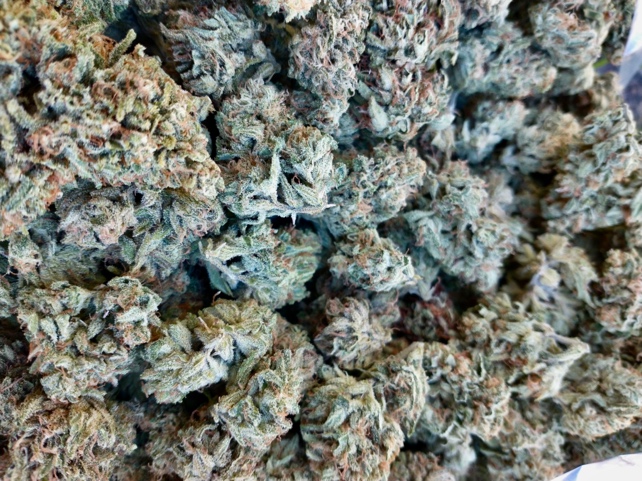 Rayna selected Jelly Rancher for their KMI entry. “We received the seed from the Humboldt Seed Company. We are really excited about this strain. We like sativas. This is a beautiful plant, and it seems very happy here. It’s an early harvest sativa that grows like an indica, but with a sativa effect.”
Rayna selected Jelly Rancher for their KMI entry. “We received the seed from the Humboldt Seed Company. We are really excited about this strain. We like sativas. This is a beautiful plant, and it seems very happy here. It’s an early harvest sativa that grows like an indica, but with a sativa effect.”
The couple offered a blind harvest tasting with a few of their friends.
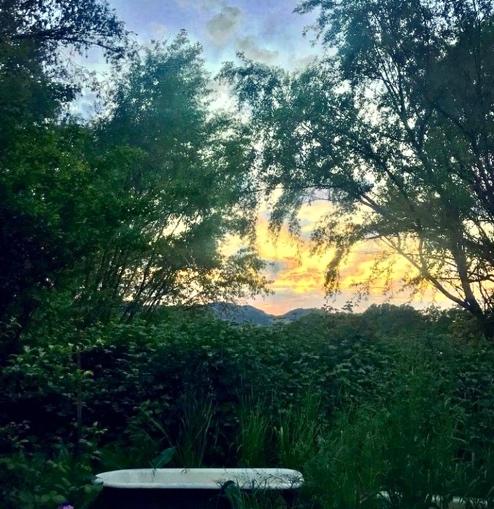 “Jelly Rancher kept coming back as our winner. It’s a nice daytime, functional high. We enjoy sharing our cannabis with our community. Our favorite feedback is that it is calming enough to allow healing to happen,” says Rayna.
“Jelly Rancher kept coming back as our winner. It’s a nice daytime, functional high. We enjoy sharing our cannabis with our community. Our favorite feedback is that it is calming enough to allow healing to happen,” says Rayna.
“The holiday of Sukkot falls during the full moon in the Jewish agricultural calendar. People would create harvest huts- sleeping and eating in the huts, spending every hour harvesting. People brought food to the garden. It is a celebration of gratitude- having to work together to bring in the harvest. Growing cannabis has really informed the way I am Jewish- through the land, the celestial cycles, and through gratitude.”
“We are so grateful we were invited to participate in the Invitational,” Rayna concludes.
Sister Moon Farm has entered Jelly Rancher in the Kure Mendocino Invitational.


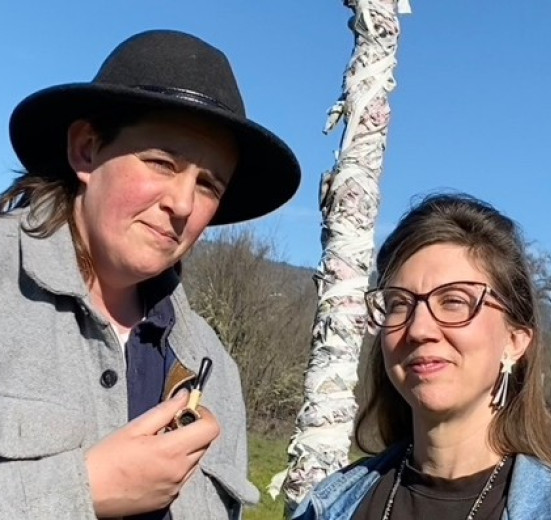

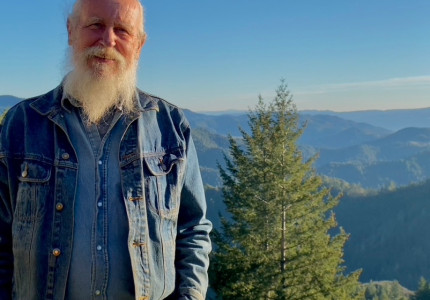
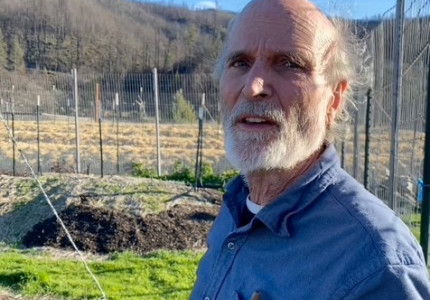
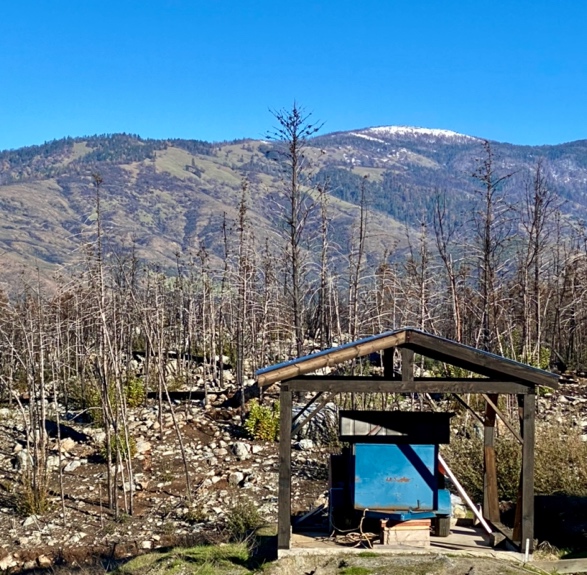 “I’ve only quit smoking three times since 1964,” he smiles.
“I’ve only quit smoking three times since 1964,” he smiles.